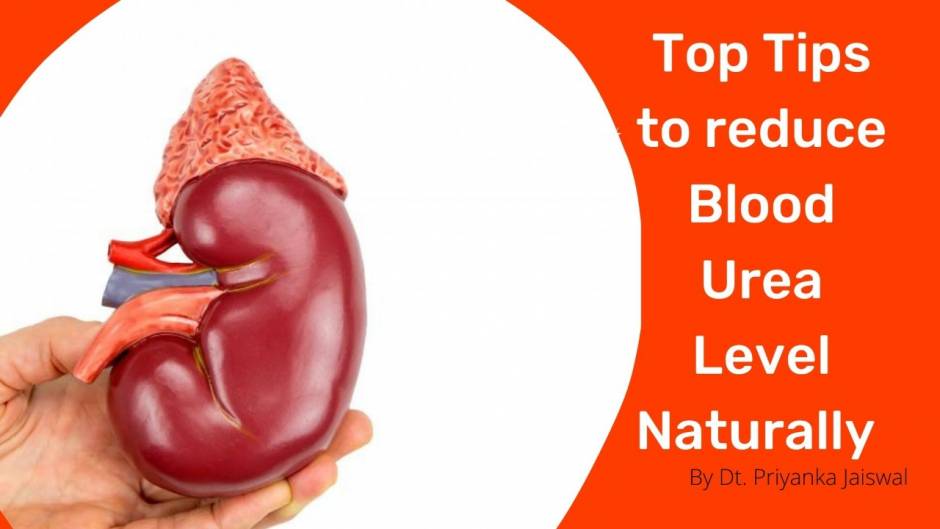How to Reduce Blood Urea?
Blood in our bodies is a crucial fluid. It runs through our heart, arteries, capillaries, and veins. All while carrying oxygen and all the vitals to the cells in our body. Along with it, blood also carries the wastes produced by metabolism, the most crucial of which is the carbon dioxide, from the tissues to the organs, from where these wastes are expelled from the body. It is why many of us often worry about how to reduce blood urea?
But aging and often mainly because of increased consumption of dietary proteins results in increased urea production in our body. This increased production of urea may cause plasma/serum urea in our blood to rise.
This area is a waste product produced due to the breakdown of proteins by the liver. It goes through our blood and is filtered out by our kidneys. Thenthe body removes it through urination. But, if your liver isn’t healthy, then what? The proteins may not get broken down the way they should be. And, if your kidneys aren’t healthy, the same might happen. The toxins will not get properly filtered out. Either of the two could lead to changes in the amount of blood urea in the body, resulting in certain health problems like:
- Frequent need to urinate
- Pain in the joints and bone
- Muscle cramps
- Restless legs while sleeping
- Itchiness
- Fatigue, and
- Swelling in the arms and legs
- Loss of appetite
Why are high blood urea levels bad?
Elevated levels of urea in your blood could have some adverse health impacts. A high concentration of blood urea may lead to oxidative stress in the cells. High blood urea also indicates increased protein breakdown, which can further be associated with decreased immune functioning. Studies indicated that high blood urea levels also indicate increased risks of infections.
High blood urea levels have also been associated with an increased risk of strokes during heart surgeries, and many adverse outcomes in patients with heart failures and other heart problems. Blood urea can even lead to decreased renal functions and other kidney functionalities.
How to Reduce Blood Urea?
First and foremost, you must see a doctor. Then, they will find out the underlying cause of your high blood urea levels. You may need to do some medical tests. They will help you determine the range of your blood urea for better diagnosis and treatment. Then you need to go to a dietician. They will give you a proper diet. It will help you reduce blood urea.
Diet and Blood Urea : How to reduce blood urea by diet?
We all have some amount of urea in our blood. But, for those, whose levels are too high, there are chances of some malfunctioning in some of the body parts, and due to this, the body is unable to remove the excess urea effectively from the body. This urea further builds up in the liver, forming a higher concentration of urea in the blood, creating problems in the kidneys and various other internal organs. In such a situation, one of the most effective ways to get back your life on track and get support for your organs is to administer certain strict dietary changes:
1. Reduce your proteins intake
When your kidneys are damaged, they fail to filter the protein properly. Thus, you should watch what you eat. Avoid high-protein foods. Your diet should not have fish, red meats, beans, nuts, grains, and dairy.
2. Consume more alkaline vegetables
Alkaline vegetables like carrots, potatoes, Chinese cabbage, and others help in neutralising the urine and reducing the impacts of high blood urea levels.
3. Consume certain foods
Eat foods that are good for kidneys. They can help your creatinine and urea levels. A few must haves are:
- Cucumber
- Lemon
- Turmeric
- Eggplant
- Red bell pepper
4. Drink plenty of water and always stay hydrated
Dehydration can reduce the blood volume. This means that the blood solutes get high. This can raise your urea levels. Drinking more and more water frequently will increase your frequency of urination. As a result, more urea and creatinine will be flushed from the body.
5. Eat more fibres
Fibre can reduce the creatinine and urea levels in blood. Thus, people with chronic kidney issues must have it. You can get it through many foods. Add them to your diet for best results.
6. Cut down on your salt intake
Do not consume much salt in your diet. This way you will have chances of getting high BP. You must not eat processed foods. It can cause many renal issues. You can also use herbs and spices. They can give flavour to your food.
7. No smoking or alcohol
Smoking is never known to have any wood impact on your health. Apart from that, they damage your kidneys. So, if you want good renal health, then you should stop today.
Excessive blood urea and creatinine can make way for serious health conditions. There are a lot of issues that you can manage with a diet. A dietician can help you with this.
Here is an overview of the blood urea / renal diet and what you can expect out of it. Different people have different needs. This is why an expert can give you a plan that is as per your needs.
Some of the main functionalities of our kidney that relates to our diet are:
- Proper excretion of all the waste products from the body.
- Proper control of fluid volume in our body, and
- Proper control of the blood pressure.
When we consume foods and drinks, our bodies use all that is needed. The rest of the food is turned into waste products. It is thrown out of the body as urine. When the kidneys are unwell, these wastes build up in the blood. It is not a good sign. If so, you need to be careful with your diet.
The Low Protein Diet to Reduce Urea Levels
| Early Morning | 1 glass cucumber juice or 1 glass fenugreek water |
| Breakfast | 2 rice idlis + ½ sambhar+1/2 coconut chutney |
| Mid-Morning Snack | 1 cup apple Or 1 cup of herbal tea with wheat biscuits |
| Lunch | 1 cup rice+ ½ cup moong dal+ ½ cup capsicum sabzi Or1 cup rice + ½ sambhar with vegetables+ onion slices |
| Evening Snack | Homemade clear vegetable soup Or 1 cup poha |
| Dinner | wheat roti+ ½ bhindi sabzi |
| Bed time | Warm water |
A diet low in proteins does not strain the kidneys. Therefore, such a diet is always the best for kidney issues. When we eat protein, the body breaks it into urea. Affected kidneys can not flush it out. This can cause a buildup.
In case of high urea and kidney issues, this is the diet for you. Such a diet does not have high-protein foods in it. It rather focuses on eating plenty of foods that are easy on the kidneys. People not suffering from kidney issues or high blood urea can not take such diets. It can cause health issues.
1. Foods for blood urea and creatinine
Foods low in protein:
- fruits
- vegetables except peas, beans, and corns
- healthy fats such as in olive oil and avocados
- herbs and spices.
Foods you can have in moderation:
- tea and coffee
- sugar
- candies
- mayonnaise
- butter
- sauces
- dressings.
Foods for breakfast:
- cereals
- Brown bread
- pasta
- oats
- rice
- corn.
2. Worst foods for blood urea and creatinine levels
Foods high in protein:
- meat
- poultry
- fish
- dairy including milk, cheese, and cream
- soy foods
- peas, beans and lentils
- gelatin.
Food is crucial for our overall health. The type of food we eat is what makes us! It is not just a fuel that makes our bodies run.
When you have health issues, you should watch your diet. In case of high urea, you must change what you eat.
Frequently Asked Questions (FAQs)
1. Question:
Can avoiding carbs help blood urea?
You can eat a diet that is low in carbs to reduce blood urea. Such a diet can help minimise the breakdown of proteins. This can lead to a low urea production. It will lead to a lower blood urea level in the body. Thus, a low carb diet can help you lower urea.
2. Question:
How lower bun levels with food?
You can lower your BUN levels by eating foods that are low in proteins. Such as:
fruits
vegetables
whole grains
legumes
3. Question:
Which is the best tea for a urea reducing diet?
For a urea-reducing diet, you can drink herbal teas for best results. Dandelion and nettle tea are the best. You can drink a cup in the morning. It can help flush out waste products through frequent urine from the body. These teas have zero calories. So, add them to your diet for instant relief.
4. Question:
What is the best diet to reduce urea in blood?
Your diet must have low protein. It should have healthy carbs. In addition, you must have good fluids. For better results, you can go see a dietician. They can give you a special diet chart for the same.
5. Question:
How much water should I Drink if I want to reduce blood urea ?
Water is the key. You should drink a lot of it. It can help flush out waste products from the kidneys. This way you can get rid of urea. You can drink 8-10 glasses of water in a day. It will keep you hydrated and flush urea making you healthy.
6. Question:
How can eating foods with fibre help?
It plays a vital role in reducing blood urea. This is because it can help the absorption of protein. When you have enough fibre in your diet, it can indirectly help reduce urea levels. Fibre acts as a bulking agent for a healthy bowel. Thus, fibre helps the body eliminate waste products. They include urea. So you should eat fibre-rich foods.
7. Question:
Can herbs assist in reducing blood urea?
Some herbs can help your kidney function. Cinnamon is a good choice. It can help the burning in the body. You can use Turmeric too. It is found in every kitchen. They can help improve kidney function. You can use dandelions. It acts as a diuretic. It keeps the kidneys clear of waste.
8. Question:
Can bread increase blood urea?
The type of bread you eat matters. Some types of bread can have higher protein content. They are made with enriched flour or added protein. These breads can increase urea levels.

